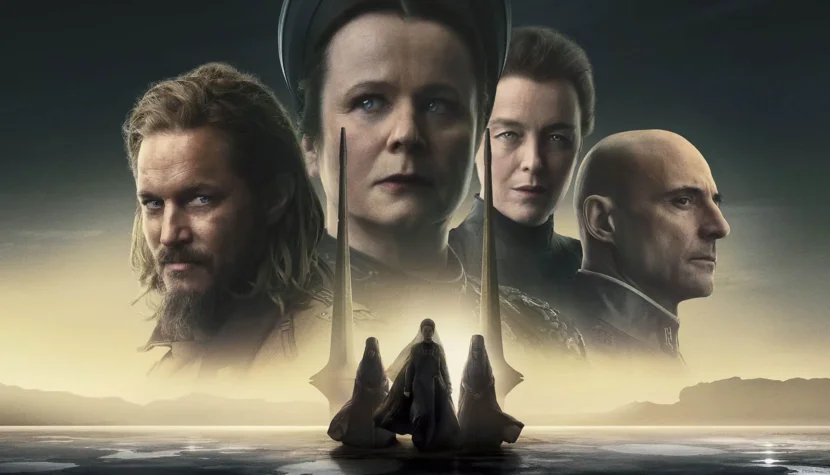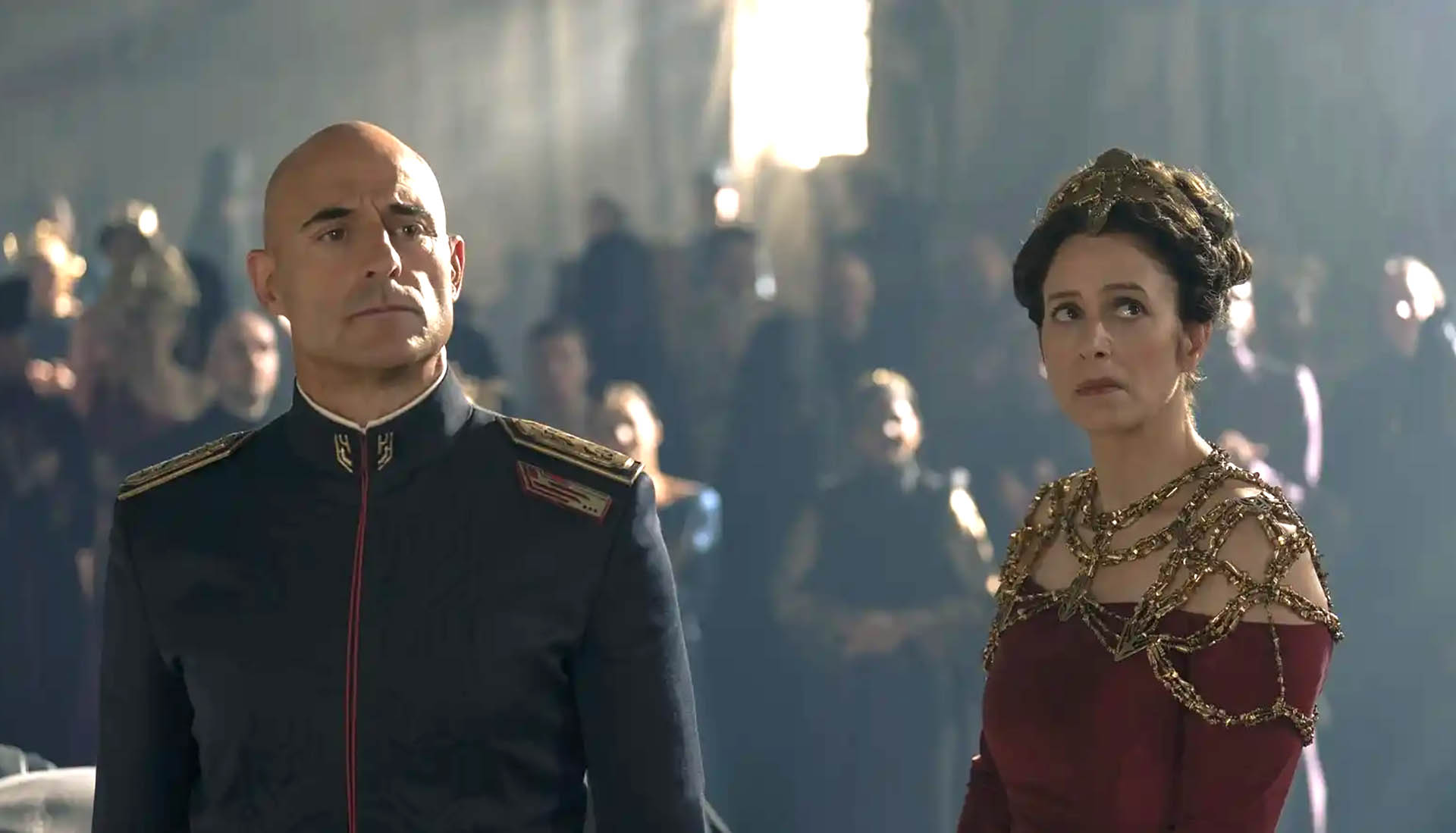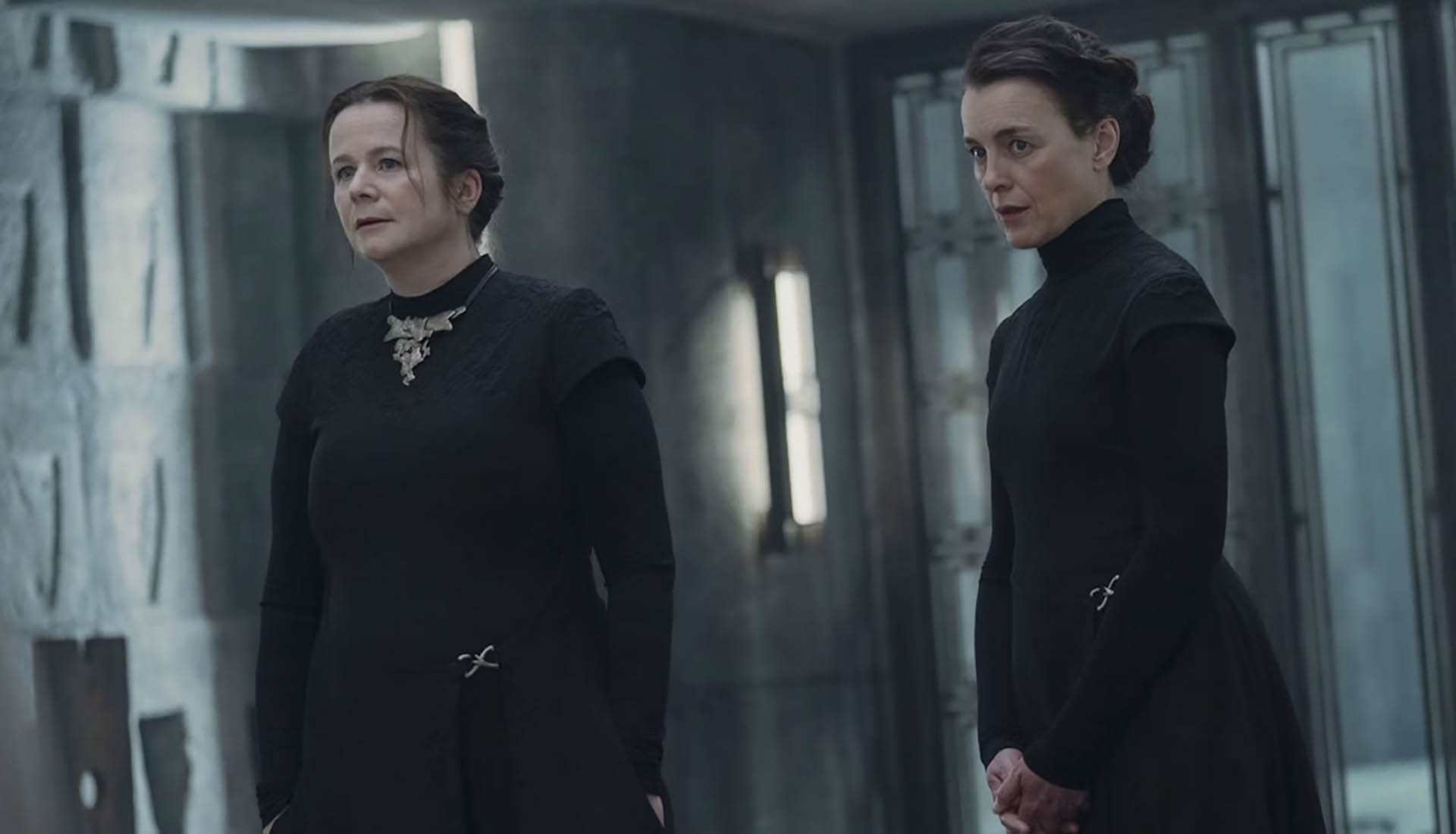DUNE: PROPHECY. A New Standard in Fantasy That Could Surpass “Game of Thrones”?

After two episodes of the series, it’s clear that visually, Dune: Prophecy is poised to surpass Game of Thrones, but the story still holds the key. It’s the narrative that must captivate viewers and fuel the show’s popularity for future seasons. Set 116 years after the great war against the machines and 10,148 years before the birth of Paul Atreides, Dune: Prophecy unfolds in a timeline that explores the universe’s deeper lore. Following the success of Denis Villeneuve’s feature film adaptation, it was evident that the Dune universe needed expansion—not just to trace the origins of the Bene Gesserit order but also to depict the pivotal war against the machines, which is central to the world that Paul Atreides would inhabit thousands of years later. For now, HBO has tackled the former, focusing on the Bene Gesserit’s origins. This approach places the series closer to fantasy than to science fiction, with minimal connections to the sci-fi tone Villeneuve introduced in his adaptations of Herbert’s work.
Currently, the genre aesthetics will only shift toward sci-fi when a series about the Butlerian Jihad is eventually made—something fans will likely have to wait for. This pivot to fantasy is not a criticism but a strength, making the series more cohesive in its aesthetics and narrative themes. So far, the two episodes offer a sketch of what the first season will hold. Two central female protagonists and at least one male character have been clearly defined: the determined and commanding Valya Harkonnen (Emily Watson), the seemingly reserved yet equally dangerous Tula Harkonnen (Olivia Williams), and the enigmatic Desmond Hart (Travis Fimmel). Meanwhile, political intrigue simmers in the background with Emperor Javicco Corrino (Mark Strong) and the emotional arc of Princess Ynez (Sarah-Sofie Boussnina). However, the central focus is the Bene Gesserit order, ruled with an iron grip by Valya, who believes power—not prophecy—is the key to survival. Breaking tradition, Valya turns to genetic technology, introducing a subtle sci-fi element. Since technology is forbidden, the Dune universe has evolved into a realm of “mind magic,” a concept left deliberately ambiguous for the audience. For this reason, this corner of Herbert’s universe will always feel more like fantasy—occasionally more grounded but undeniably magical rather than strictly scientific. The narrative emphasizes empaths, supernatural experiences, and a deep-seated disdain for applied sciences, despite their necessity in a society as advanced as that of Dune.

This approach leans heavily into the fantasy genre, particularly as it avoids the dynamic evolution of its world over time—a hallmark of science fiction. The series states that its events occur roughly 10,000 years before Paul Atreides’ birth, yet there’s no visible evolution in technology, machines, or even personal shields. This lack of development, while characteristic of fantasy, detracts from the sci-fi credentials some viewers might expect. Still, it doesn’t diminish the quality or stature of Dune: Prophecy. Some viewers may unfairly conflate quality with a futuristic scientific vision. Yet, as a fantasy series with nods to science fiction, Dune: Prophecy could rival Game of Thrones, promising a sprawling epic set in a mysterious world where human powers blend with lost technologies. There’s little the series lacks—except perhaps a signature musical theme, where Game of Thrones still outshines the Alison Schapker-led show. In other respects, Dune already surpasses its rival after just two episodes. The aesthetics, set design, and special effects are unmatched. The precise narrative structure clearly delineates its many threads, offering a broad and compelling story. Fans of conspiracy theories, political intrigue, mental abilities, secret societies, and human drama will find their niches here. There may not be dragons, but there are sandworms and the enigmatic power of the Bene Gesserit’s Truthsayers, a force few can resist.

The Dune universe has never felt richer than it does now, thanks to this series, which allows a deeper appreciation of Villeneuve’s feature films. After two episodes, it’s too early to pass judgment on the show as a whole. For now, we can only highlight its strengths and identify potential weaknesses. The only flaw so far is perhaps its heavier reliance on fantasy aesthetics, which might alienate some sci-fi fans. But then again, has Dune ever truly belonged solely to the realm of science fiction?

